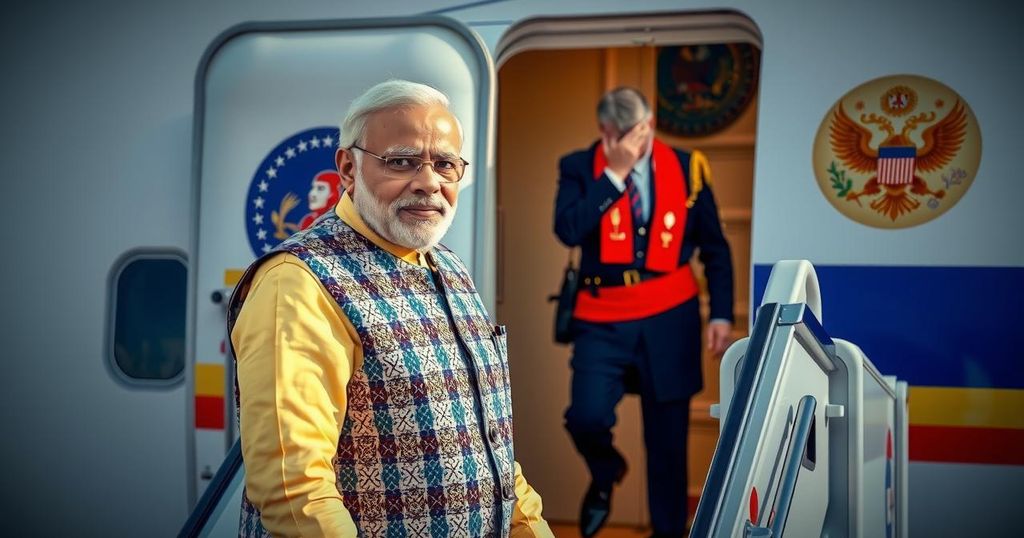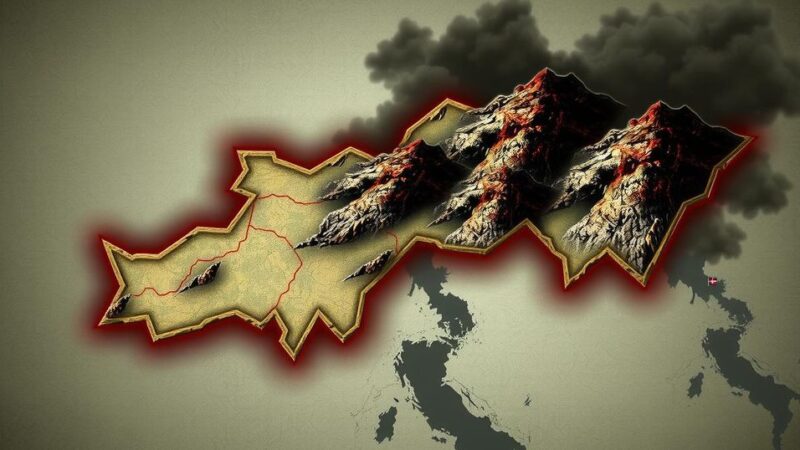Prime Minister Narendra Modi has embarked on a visit to Russia for the Brics summit in Kazan. This trip aims to bolster India-Russia relations following the recent LAC agreement with China, which may allow for a bilateral meeting with President Xi Jinping. Modi will discuss key issues with other Brics leaders, including President Putin, and the summit reflects India’s ongoing commitment to multilateral cooperation, especially in light of geopolitical shifts and expanded Brics membership.
Prime Minister Narendra Modi has commenced his journey to Russia to participate in the Brics summit, which is set to take place in the city of Kazan. His visit aims to strengthen the strategic partnership between India and Russia, building upon the annual India-Russia summit held in Moscow earlier this July. In his remarks prior to departure, Prime Minister Modi emphasized the significance of India’s cooperation within the Brics framework, particularly in the context of advocating for reformed multilateralism and establishing resilient supply chains. The backdrop of this trip is particularly noteworthy, as it follows India’s recent announcement regarding an agreement with China concerning patrolling along the Line of Actual Control (LAC), thus hinting at the potential for a bilateral meeting with Chinese President Xi Jinping. Modi indicated a desire to engage with other Brics leaders during this summit. Upon arriving in Kazan, Modi is scheduled to meet with Russian President Vladimir Putin, where they will review the implementation of agreements established during their previous summit and discuss future cooperative endeavors. Furthermore, the two leaders are anticipated to address the ongoing situation in Ukraine, including India’s efforts to mediate and facilitate dialogue between Russian and Ukrainian officials. While there is no official confirmation of a meeting with President Xi from Indian officials at this point, the recent LAC agreement is expected to pave the way for such a discussion, especially given the historically tense relations following the fatal clashes at Galwan Valley in June 2020. Modi articulated the importance of the Brics bloc, noting its evolution into a vital platform for dialogue on pressing global issues, including climate change, economic collaboration, and cultural exchanges. The recent expansion of Brics to include new member states, such as Egypt, Ethiopia, Iran, and the UAE, has amplified its global impact and agenda for the collective good. Modi’s participation in the summit is keenly observed, both for its implications for India-Russia relations and the broader context of international diplomacy concerning China and Russia.
The Brics summit serves as a significant international platform where emerging economies—including Brazil, Russia, India, China, and South Africa—convene to address and discuss crucial global issues. This year holds particular importance as it follows the formal introduction of new member states that enhance the bloc’s representation and influence. The dynamics of Modi’s visit are further complicated by the long-standing military standoff between India and China, particularly regarding the LAC, which has been a source of tension since clashes in 2020 led to severe casualties on both sides. This summit presents a strategic opportunity for diplomatic engagement, particularly amid shifting geopolitical landscapes influenced by the ongoing conflict in Ukraine and broader international relations.
Prime Minister Modi’s visit to Russia for the Brics summit is strategically aimed at reinforcing India’s partnerships, especially with Russia, while navigating complex relations with China. His planned discussions with President Putin and the potential meeting with President Xi underline India’s commitment to engaging with key global players on vital issues. As Brics evolves into a more inclusive platform, Modi’s statements reflect India’s dedication to collaborative dialogue and cooperative frameworks that address both regional and global challenges. The outcomes of this summit could significantly shape future diplomatic relations in a rapidly changing international context.
Original Source: www.hindustantimes.com






